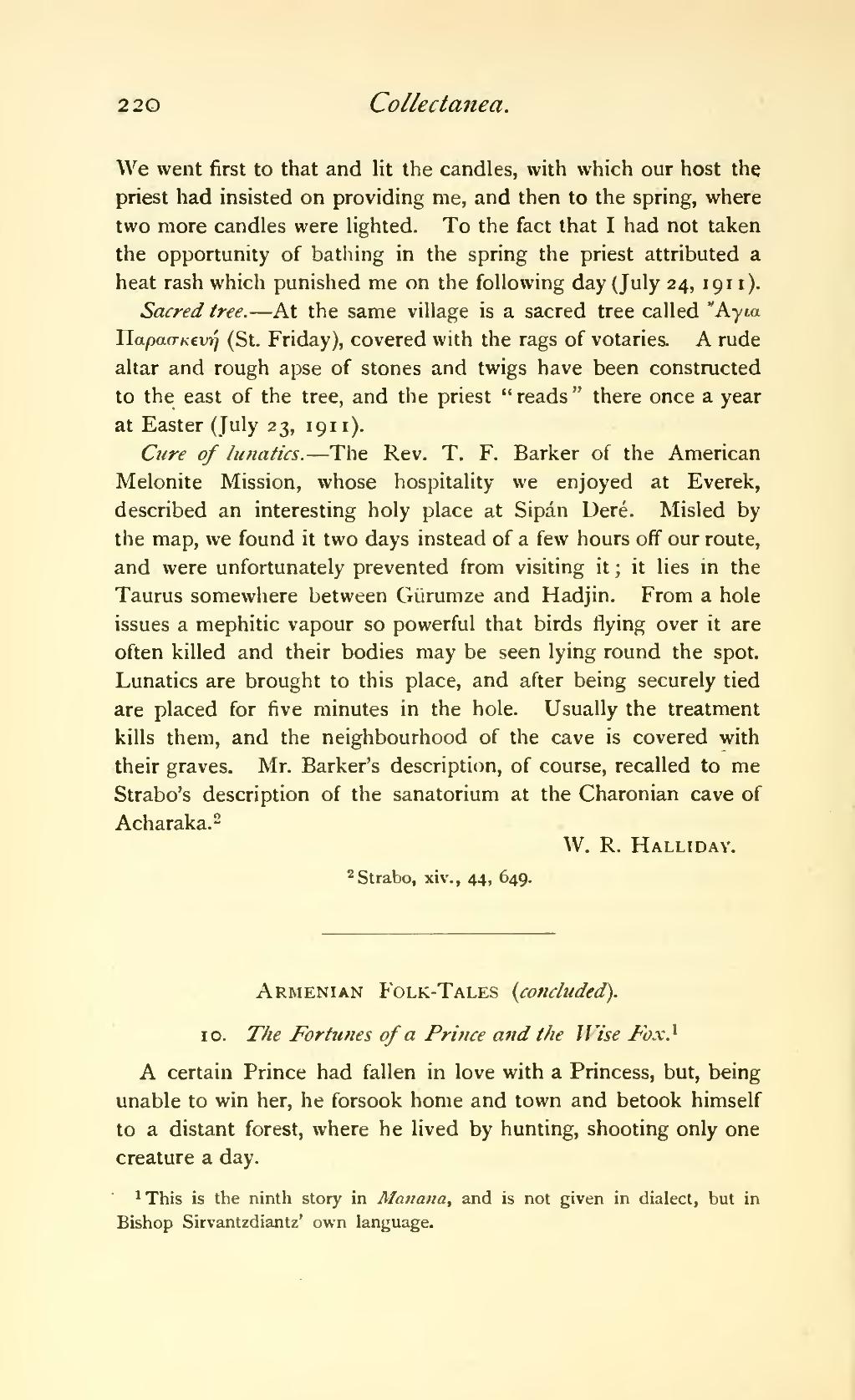We went first to that and lit the candles, with which our host the priest had insisted on providing me, and then to the spring, where two more candles were lighted. To the fact that I had not taken the opportunity of bathing in the spring the priest attributed a heat rash which punished me on the following day (July 24, 191 1).
Sacred tree.—At the same village is a sacred tree called (![]() Greek characters) (St. Friday), covered with the rags of votaries. A rude altar and rough apse of stones and twigs have been constructed to the east of the tree, and the priest "reads" there once a year at Easter (July 23, 1911).
Greek characters) (St. Friday), covered with the rags of votaries. A rude altar and rough apse of stones and twigs have been constructed to the east of the tree, and the priest "reads" there once a year at Easter (July 23, 1911).
Cure of lunatics.—The Rev. T. F. Barker of the American Melonite Mission, whose hospitality we enjoyed at Everek, described an interesting holy place at Sipán Deré. Misled by the map, we found it two days instead of a few hours off our route, and were unfortunately prevented from visiting it; it lies in the Taurus somewhere between Giirumze and Hadjin. From a hole issues a mephitic vapour so powerful that birds flying over it are often killed and their bodies may be seen lying round the spot. Lunatics are brought to this place, and after being securely tied are placed for five minutes in the hole. Usually the treatment kills them, and the neighbourhood of the cave is covered with their graves. Mr. Barker's description, of course, recalled to me Strabo's description of the sanatorium at the Charonian cave of Acharaka.[1]
- ↑ Strabo, xiv., 44, 649.
Armenian Folk-Tales (concluded).
10. The Fortunes of a Prince and the Wise Fox.[1]
A certain Prince had fallen in love with a Princess, but, being unable to win her, he forsook home and town and betook himself to a distant forest, where he lived by hunting, shooting only one creature a day.
- ↑ This is the ninth story in Manana, and is not given in dialect, but in Bishop Sirvantzdiantz' own language.
